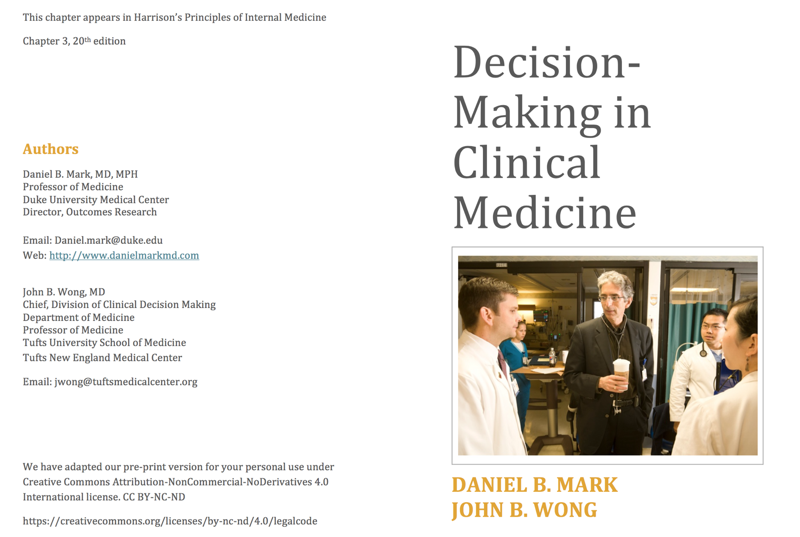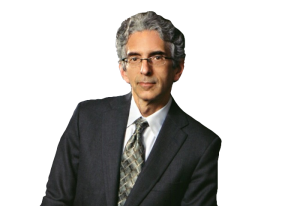Overview
Drs. Mark and Wong explore several topics in the process of clinical decision making.
Sir William Osler’s familiar quote “Medicine is a science of uncertainty and an art of probability” captures well the complex nature of clinical medicine. Although the science of medicine is often taught as if the mechanisms of the human body operate with Newtonian predictability, every aspect of medical practice is infused with an element of irreducible uncertainty that the clinician ignores at her peril. Clinical medicine has deep roots in science, but it is an imprecise science. More than 100 years after the practice of medicine took its modern form, it remains at its core a craft, to which individual doctors bring varying levels of skill and understanding. With the exponential growth in medical literature and other technical information and an ever-increasing number of testing and treatment options, 21st century physicians who seek excellence in their craft must master a more diverse and complex set of skills than any of the generations that preceded them.
This chapter provides an introduction to three of the pillars upon which the craft of modern medicine rests: 1) expertise in clinical reasoning (what it is and how it can be developed); 2) rational diagnostic tests, use and interpretation; and 3) integration of the best available research evidence with clinical judgment in the care of individual patients (evidence-based medicine or EBM and the tools of EBM).

